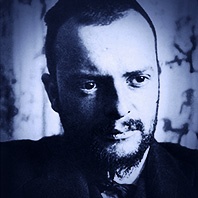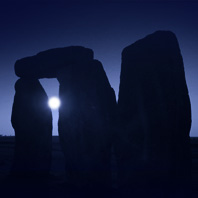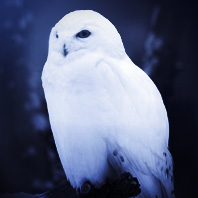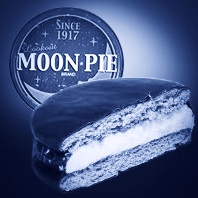Sir Charles Spencer Chaplin (1889–1977) is considered one of the first movie stars ever and made film history with his acting and his works. He is also one of the few artists who managed the transition from silent films to sound films.
Because of using archetypal imagery and symbols in his films, it is natural that the moon could also play a part somewhere. We found four references:
Read more
Shortly before Easter, we are taking a look at Christianity and notice that a very important event must have taken place at the full moon: the Last Supper of Jesus and his disciples. From a historical point of view, the Last Supper derives from the Jewish Passover feast (Seder), which traditionally takes place on the eve of Passover. This meal is being celebrated on the 14th Nisan, which is always the first full moon after the spring equinox – the beginning of spring. This is how later, the calculation of the Easter date had been determined: »Easter takes place on the Sunday after the first full moon in spring.«
Read more
Just like with all natives from different countries and continents, the Moon also plays an important role amongst African peoples in myths and stories. In this respect, we have already mentioned other peoples, for example the Native American Indians in America, the Inuit in the far north or the Aborigines in Australia.
Read more
Paul Klee (1879–1940) was a German painter and graphic artist, one of the biggest names of the Classic Modern Era, being the time at the beginning and first half of the 20th century, which was expressed in so many different styles and is nowadays regarded as avant-garde of that time. Paul Klee created cubistic, expressionistic and surrealistic paintings. The names of his friends read like the »who’s who« in the art scene: August Macke, Wassily Kandinsky, Franz Marc, Walter Gropius, Robert Delaunay, Lyonel Feininger, Alexej von Jawlensky, Pablo Picasso …
Read more
Everyone is familiar with the silhouette of the Stonehenge rocks in the southern English county of Wiltshire, one of the truly ancient structures of human kind that continues to fascinate because of its archaic construction and mystical presence. Maybe it reminds us people of our origin and of something we often tend to forget amid our hectic everyday world: simplicity.
At the same time, the building of Stonehenge has been everything but easy back then. The age of the grounds is estimated to be more than 5000 years. Experts assume, it took many millions of working hours to dress and transport the up to 50 tons heavy rocks by hand and to erect them in the well-known formation. In particular the lintels, on top of the upright stones, leave us in awe.
Read more
Does it surprise anyone that the full moon plays a part in the Harry Potter novels, the most popular fantasy stories of these days. This appears to be quite natural midst all the magic. Are there differences between the individual volumes? What other connections are there with the full moon? And: Which of the performers may have possibly been born on the full moon? These questions occupied us and brought forward some astonishing details.
Initially, we searched through the texts of all seven Harry Potter books and counted how often the word »full moon« appeared. We found 13 places altogether.
Read more
This article is for all lovers who are far apart from each other – maybe due to travelling, maybe because of personal circumstances.
Sometimes we have to learn not to experience geographical distance as inner distance. But although it is said, love surmounts time and space, one still has a longing for closeness, which is difficult to push aside, despite all sensible thoughts. A kiss over the phone is simply not the same as the moment when lips touch.
Read more
The medium-format cameras by the Swedish manufacturer Hasselblad, enjoy a legendary reputation and were – at least back then – probably the best cameras in the world. Not surprising that NASA chose exactly this brand during their equipment selection for their Moon missions. At that time, everything revolved around photographic quality of taking the pictures and moreso, around the reliability of the cameras. Back then, you did not have the opportunity to immediately examine whether a photograph turned out well, because all material could be developed only after the return to Earth. So, with regards to cameras there was the need to hedge one’s bets – inconceivable, if those photos would have turned out a complete flop.
Read more
As is generally known, the Moon is not a disc but a sphere and one could ask the question if we actually get to see different sides of this Moon sphere? The answer is: no! At least this is true for the observer from Earth.
Indeed, we always see one half of the Moon. This is because the Moon is locked into the Earth rotation. This is called »synchronous rotation«. It means that we are never able to see the side of the Moon facing away from us. And until it was possible to photograph the reverse of the Moon with space probes, nobody knew what we would find or how it would look.
Read more
A 3D Printer is a device with which you can print three-dimensional objects. This may initially sound strange, but will become obvious once you know that the objects can be built in layers. The printer applies the relevant materials instead of ink (i.e. plastic) and consequently forms the result.
Because these printers are now available for consumers at normal prices, in the future, we will purchase merely printing data instead of the product. So this trend actually moves away from mass-market productions and towards individualized items.
Read more
We have already reported about full moon delicacies, which are being produced during the full moon. Especially popular are full moon bread, cheese, sausage, coffee, beer and water. But there are also foods that have been simply connected to the Moon via their shape and therefore carry the moon in their name. For example the mooncake at the Chinese festival or the American »Moon Pie«, a sandwich cookie that has been made since 1917.
Read more










